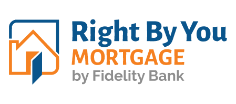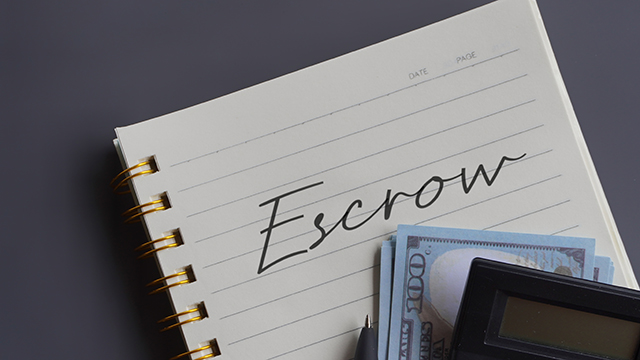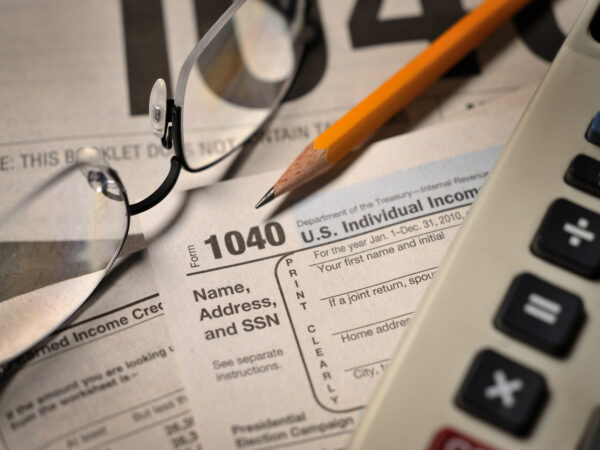Most people who have bought a home can relate to the saying, “underneath apparent simplicity lies immense complexity.” That’s because when you get a mortgage, you’re not just responsible for paying off your loan. You also have property taxes and homeowners insurance to pay, and perhaps mortgage insurance and flood insurance, too.
This is where escrow accounts come into play. An escrow account ensures these costs are paid on time, so you can enjoy the comforts of your new home without worrying about them. So, let’s dive into them.
What is an Escrow Account?
The term “escrow” comes from the Old French word “escroue,” meaning a scroll or a document. It’s used to describe the practice where a third party holds onto documents or money involved in a transaction until all conditions are met. If you’re in the process of buying a home, you may have already used an escrow account when you made an earnest money deposit on your home purchase.
When you close your mortgage, your lender will open a different escrow account to facilitate the timely payment of your property taxes, homeowners insurance premiums, and other costs. For many, removing the added hassle of having to manage tax and insurance payments on their own makes having an escrow account a huge bonus.
Is an Escrow Account Required?
Certain loans, especially those aimed at first-time homebuyers and those that are required to have flood insurance, require an escrow account. It’s also usually required for loans with a down payment of less than 20% or if a refinance results in a loan-to-value (LTV) of more than 80%. The LTV compares the loan balance to the home’s appraised value. Loans with higher than 80% LTV are considered higher risk by your lender and, therefore, generally require an escrow account.
The only scenario that may allow a borrower to opt out of an escrow account is if they have an LTV of 80% or less. But keep in mind, your interest rate might be slightly higher if you choose to go this route. A lender views a loan without an escrow account as higher risk because there is a chance a borrower could allow their homeowners insurance to lapse or become overdue on their property taxes.
How Escrow Accounts Work
During the closing of your home purchase, your lender calculates the annual costs of your property taxes and homeowners insurance and divides this total by twelve to determine your monthly escrow payment. This amount is added to your monthly mortgage payment and your lender collects these payments and puts them in your escrow account. You will also be required to pay one year of escrow plus two months of cushion reserves at closing. This amount will be included in your closing costs and will be used to establish your escrow account and ensure you have enough to pay your property taxes and your first insurance premiums. As your property taxes and homeowners insurance bills become due, the lender pays them from the account.
Because property taxes and insurance premiums can change over time—for example, taxes rise as your home increases in value—the amount of money needed in your escrow account will change over time. This is why, every year, your lender will analyze and adjust your monthly escrow payment to ensure there is enough money in your escrow account to cover these costs. If there’s a shortfall, not enough money to cover your insurance costs, your escrow payment may increase, which also means your mortgage payment may increase over time.
What You Need to Know
Even if you have an escrow account, it’s still a good idea to keep an eye on the account balance and make sure your property taxes and insurance premiums are being paid. Fortunately, your lender will provide an annual escrow statement that details payments made from the account and projects future payments. If you see any discrepancies or have any questions about your statement, contact your lender right away.
Another thing to keep in mind is while your lender is paying your property taxes and insurance, you may still receive bills for these items in the mail. That doesn’t mean you have to pay them, but they’re good reminders to check your escrow balance and confirm your lender did in fact pay those bills.
It’s true that escrow accounts can be a little confusing, especially to first-time homebuyers. But remember the saying above? Sometimes the reverse is true: Underneath apparent complexity lies immense simplicity. And when it comes to managing the unpredictable costs that come with homeownership, having an escrow account is about as simple as it can get.
If you have further questions about escrow accounts or any other aspect of the mortgage process, our team of local loan experts at Right By You Mortgage can help. Find a local loan officer near you or email us at inquqiries@rightbyyoumortgage.com to get started.









